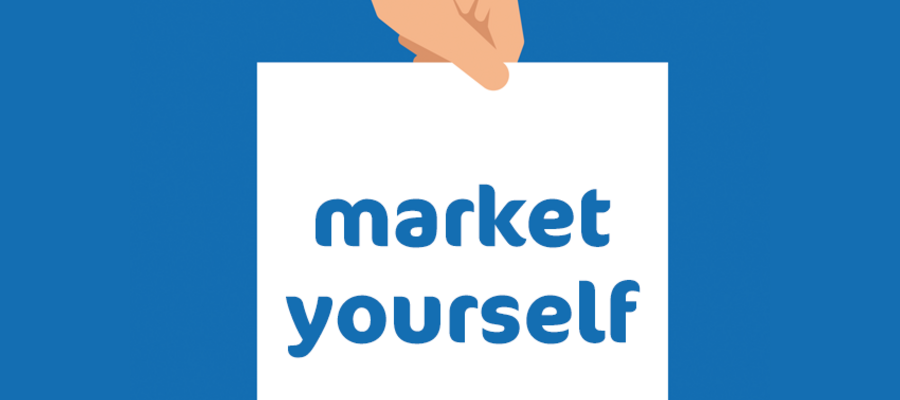This article was originally written by Zac Hind for the become Brisbane office, however, as we come into graduation season here in the UK we thought we’d share it with you!
Zac here from the become Brisbane office. Last week I was lucky enough to be asked to speak to 60 students at the Queensland University of Technology about what my role as a recruitment consultant is, what they can/should be doing to make themselves more competitive in the job market and what to expect.
I’m incredibly passionate about the industry that I recruit in (Digital Marketing) but unfortunately, I don’t get the opportunity to help graduates/juniors into positions very often. A lot of businesses understand that it’s a junior candidate rich market and using an agency isn’t usually a necessity, the trick of casting a wide enough net usually suffices.
I see a lot of Graduates/Juniors coming through my various channels that show mass amounts of talent and passion. The problem is that there is no one out there showing them how to stand out from the crowd and ultimately “market” themselves.
Opportunities to speak to University students in mass provides a great platform for me to give back to the next generation of marketers. The fact that they are an engaged and an eager audience only makes it even more of a privilege.
The Importance of Networking
I started my presentation off by talking about the importance of Networking. It’s a no brainer that the more people you’re meeting/connecting with, the easier it makes the job search. “It’s not what you know, it’s who you know” rings especially true in a level playing field like the graduate market.
I placed a particular focus on ensuring that the students were active on LinkedIn. Most of them had a LinkedIn account but it was definitely not being utilised. Simply having an account isn’t enough, it needs to be well presented with up to date information.
Once your profile is looking the part it’s then your responsibility to ensure that you’re actively engaging with others on the platform, “liking” someone’s content doesn’t really count as engagement, you have thoughts and opinions of your own – voice them*.
*DISCLAIMER – try and stay away from anything too political or opinionated, you want to be seen as someone who engages constructively not someone who uses LinkedIn to stir the pot.
Physical networking was next on the list, this can be a tricky one for people. If you are naturally introverted, it can be difficult to come out of your shell and strike up a conversation with a room full of strangers. My advice for those who are introverted is to start small and go from there. Perhaps start with a meet-up on campus with people you know and then build up confidence from there.
The CV – Don’t mix up roles of responsibility and achievements
Next up we covered CV’s, this is a very in-depth subject that is quite contentious amongst recruiters/hiring managers. I could talk for half an hour on this subject itself, so I touched on the things I thought most important.
Biggest pet peeve of mine is people getting achievements and role responsibilities confused. Make sure you know the difference, people will get these confused and list their role responsibilities down as achievements. It can lead to you looking very underwhelming as a candidate.
Example, if you were employed as a Social Media Community Manager and you stated an achievement as “Managing a social media community of 15k followers, responding to all direct messages and posting fresh, engaging content daily” I would begin to ask questions. Surely what was listed as an “achievement” is in fact what is required of you in your role.
Also ensure that your CV is hitting the mark in relation to its appearance. There are enough free programs out there that you can do better than Microsoft Word, size 18, Times New Roman. The flipside to that is it can be difficult to interpret your experience at first glance when your CV is an InDesign masterpiece with 6 pictograms and 8 words. Find that happy balance between aesthetically pleasing and informative.
The Interview – be prepared
The last topic we covered which is the last hurdle for any grad looking for work. The interview. Undoubtedly one of the most difficult/scary things for a Graduate to go through. If not properly prepped it has the ability to go south very quickly. It’s likely that a grad up until this point has not had an interview as in-depth as they will experience when going for the first full-time role.
I’ve broken it down into dot points for everyone.
It’s better to overdress than underdress, if in doubt of the dress code, ask.
Always be 15 minutes early to your interview, if you’re going to be late. Call ASAP and explain the situation. They’ll understand.
Answer every question with context. Don’t just give them a yes or no, go into more depth.
If you don’t know the answer to a question, be honest, follow up with “I don’t know off the top of my head, I’ll find out and get back to you”. As soon as you lie things start to snowball out of your control.
Have questions prepared and written down. It shows that you actually care about the role and company, plus writing them down means you won’t forget.
Hopefully I was able to provide some valuable takeaways for the students that they can action in their pursuit of their next role. Because at the end of the day that’s our job as recruiters, right? Helping people with their career and giving some actual value back to the community we work in.

